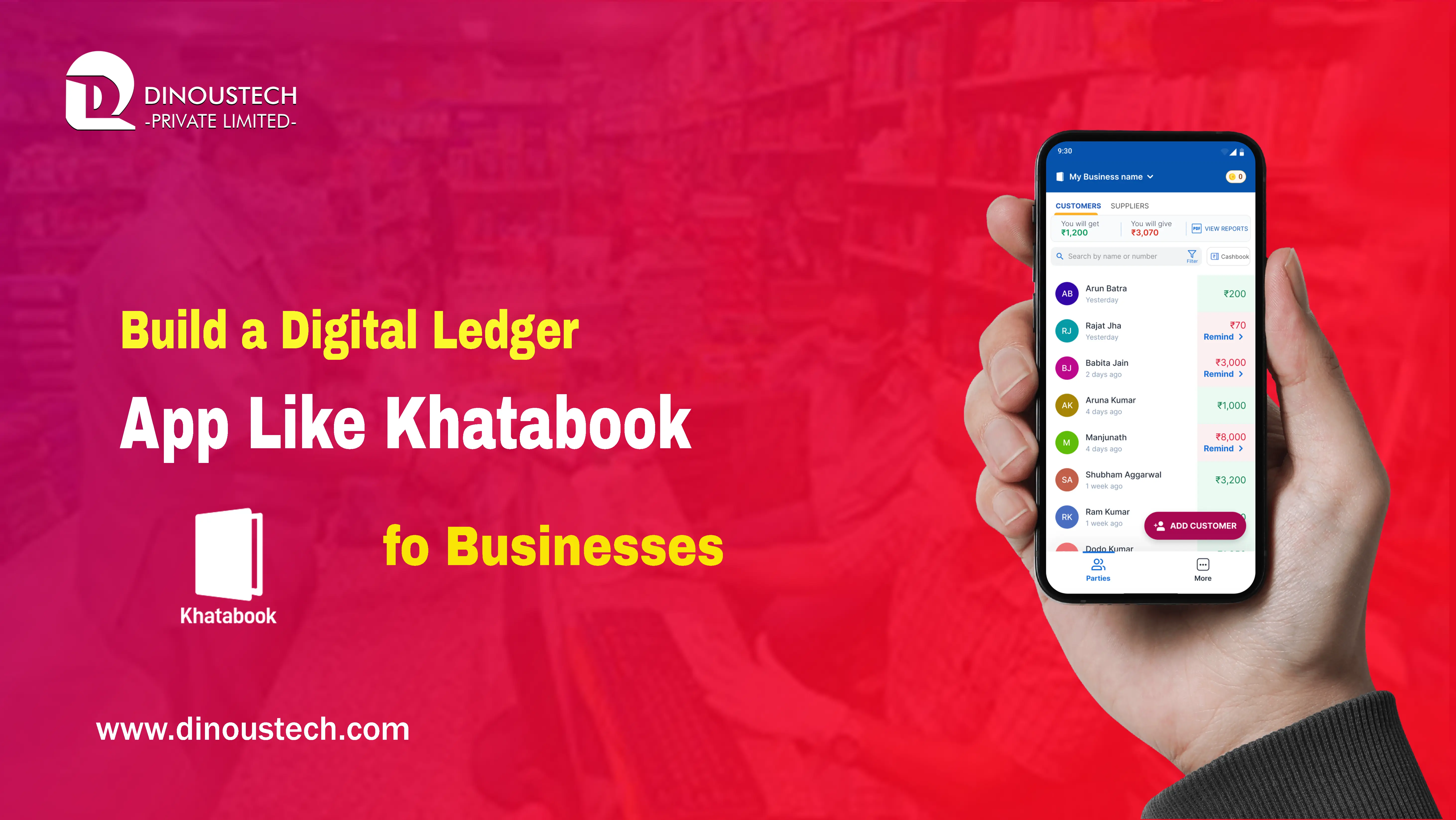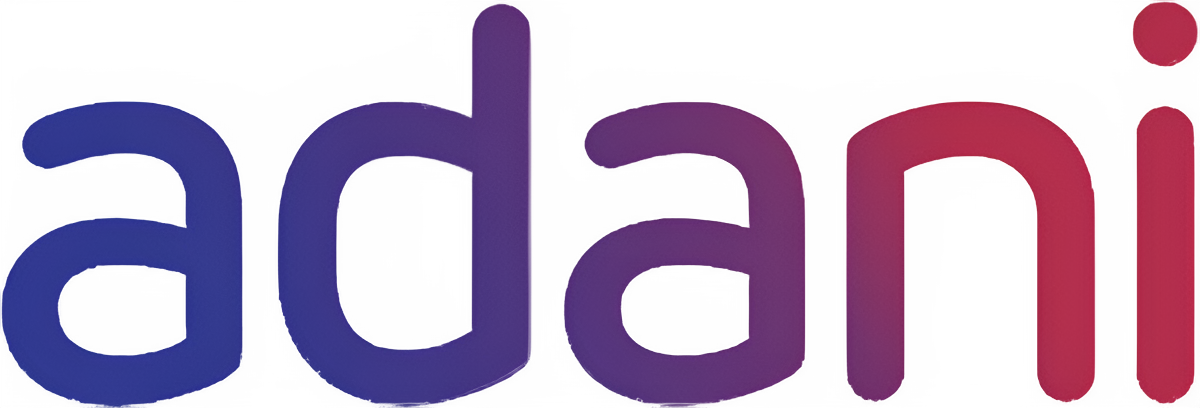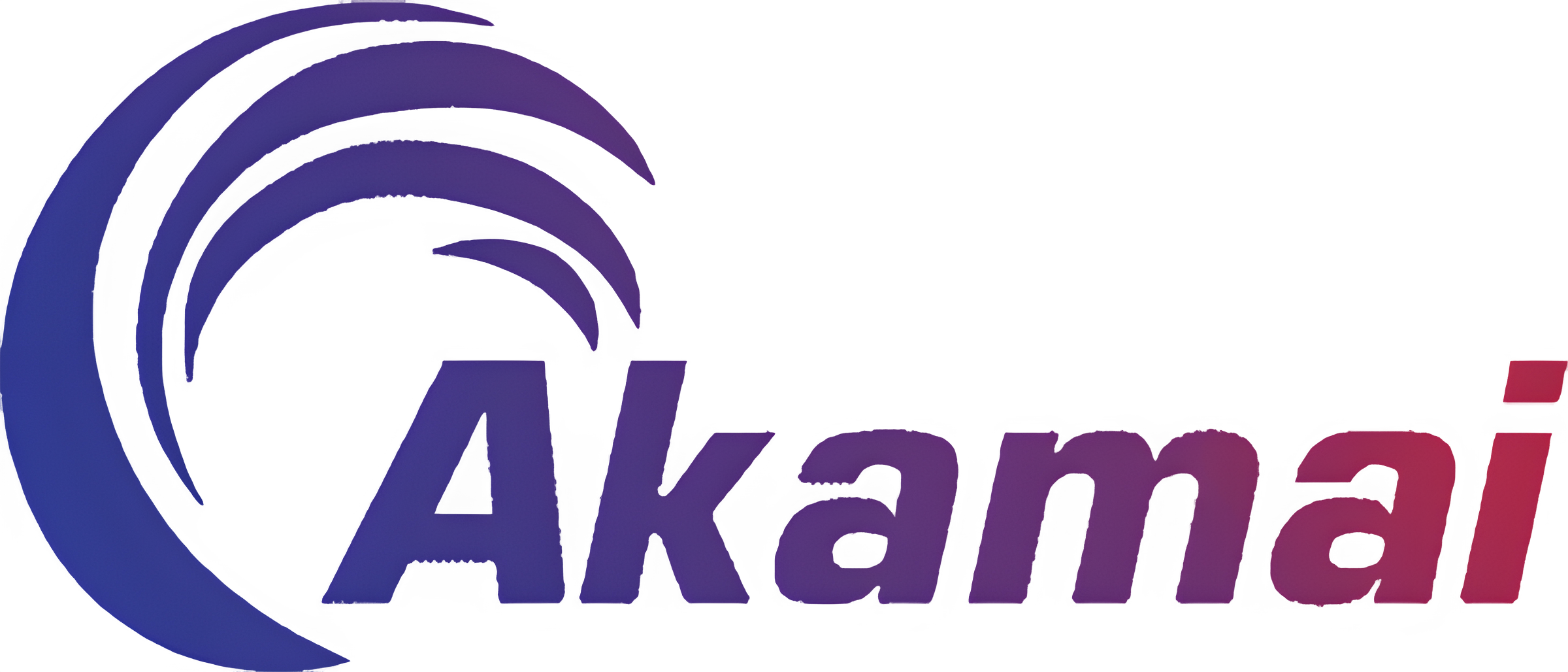Build a Digital Ledger App Like Khatabook for Small Businesses

In an era where smartphones are ubiquitous, small business owners are seeking digital solutions to simplify their day-to-day operations. One critical need for merchants, shopkeepers, and micro-entrepreneurs is maintaining accurate credit and debit records. Traditional paper ledgers are vulnerable to damage, loss, and manual errors, making bookkeeping a time-consuming chore. Recognizing this gap, apps like Khatabook have emerged to offer intuitive, real-time digital ledger management. A Khatabook clone app or Khatabook similar app can transform how local businesses maintain their financial records, send payment reminders, and generate reports without requiring advanced accounting knowledge. At Dinoustech Private Limited, a best software development company and best mobile app development company, we specialize in crafting robust, user-friendly ledger apps that empower small businesses to manage their accounts wherever they are.
Understanding the Market Need
Small businesses often operate on tight margins and face irregular cash flows. Many customers in semi-urban or rural areas prefer purchasing on credit and settling dues later, making accurate record-keeping essential. When merchants rely on paper notebooks, they risk losing records to weather damage, theft, or misplacement. A digital ledger app eliminates these vulnerabilities by storing data securely in the cloud. Search trends for phrases like “khatabook clone app” and “digital ledger app development” reflect growing demand from shopkeepers who want to move away from manual accounting. By offering a solution that is easy to adopt and requires minimal training, developers can tap into a large and underserved market. Dinoustech’s experience as a custom website development company allows us to create complementary web portals for merchants who need access on desktops, further enhancing operational flexibility.
Core Functions of a Digital Ledger App
A successful digital ledger app enables merchants to create profiles for each customer, record credit and payment transactions in real time, and view outstanding balances at a glance. Merchants can add transaction details, such as amount and date, without navigating complex menus. Color-coded indicators highlight pending payments and cleared dues, minimizing confusion. The app should also allow merchants to send automatic SMS or WhatsApp reminders, prompting customers to settle their bills on time. Generating consolidated reports—daily, weekly, or monthly—helps business owners analyze sales trends and monitor cash flow. By focusing on these core functions, a Khatabook similar app ensures that users can transition seamlessly from paper to digital ledgers. Dinoustech’s role as a best mobile app development company involves refining these features through user testing, ensuring they address real-world pain points.
Designing an Intuitive User Experience
User experience is critical in driving adoption among small business owners who may not be tech-savvy. The interface must be intuitive, with clear navigation and visually distinguishable elements. For instance, a simple onboarding process guides new users through creating a store profile, setting up payment methods, and adding the first customer. A minimalist design—crafted in partnership with an affordable web design company—uses high-contrast colors and legible fonts to facilitate quick data entry. On the home screen, merchants see a snapshot of today’s transactions and a list of customers with outstanding balances. Tapping a customer name opens a detailed view, showing transaction history and options to send reminders. Dinoustech leverages industry best practices in UX design to ensure the app feels familiar, reducing the learning curve and encouraging consistent use.
Selecting the Ideal Technology Stack
When building a Khatabook clone app, the choice of technology stack determines performance, security, and scalability. On the backend, serverless architectures—through AWS Lambda or Google Cloud Functions—enable cost-effective scaling as user numbers grow. Microservices built in Node.js or Python (Django) handle essential functions like user authentication, transaction processing, and reporting. For the database, a relational system such as PostgreSQL or MySQL securely stores customer information, ledger entries, and merchant profiles. To accelerate development for both iOS and Android platforms, cross-platform frameworks like React Native or Flutter are often employed. These frameworks allow developers to maintain a single codebase, shortening time-to-market and reducing maintenance costs. By collaborating with the best software development company, small businesses receive an application that balances advanced capabilities with resource efficiency.
Integrations and Third-Party Services
A comprehensive ledger app requires integration with third-party services to enhance functionality. Payment gateways—such as Stripe, Razorpay, or PayPal—facilitate seamless in-app transactions, allowing customers to pay outstanding balances directly through the app. Messaging APIs like Twilio or Nexmo enable automated SMS and WhatsApp reminders, reducing the need for manual follow-ups. Cloud storage solutions—AWS S3 or Google Cloud Storage—serve as repositories for backup and archival, ensuring data durability even if a device is lost. Analytics platforms—such as Google Analytics for Firebase—provide insights into user behavior, helping developers refine features based on real-time usage patterns. A custom website development company like Dinoustech can also create a web dashboard that mirrors mobile functionality, enabling merchants to access their data from desktops and print reports for offline review.
Monetization Strategies
For a sustainable digital ledger app, choosing the right monetization model is crucial. One popular approach is a subscription-based model, where merchants pay a monthly or annual fee to unlock advanced features, such as detailed analytics, multi-user access, or priority customer support. Another option is a freemium model, providing basic ledger functions for free while gating premium capabilities—like multi-branch management or API access—behind a paywall. A commission on transactions model can charge a small fee when customers settle debts through the app’s integrated payment gateway. For regional markets, in-app advertising may generate supplementary revenue, provided the ads remain relevant to small business owners, such as promotions for accounting software or local supply stores. Dinoustech collaborates closely with clients to identify the optimal mix of these strategies, ensuring profitability while maintaining a user-centric experience.
Security and Compliance
Since the app handles sensitive financial data—customer names, transaction amounts, and payment information—implementing robust security measures is non-negotiable. All data in transit must be encrypted using TLS/SSL protocols, while data at rest should be protected with AES-256 encryption. For user authentication, employing multi-factor authentication (MFA) or biometric login (fingerprint, Face ID) strengthens access controls. Regular security audits and penetration tests—conducted by a best software development company—identify vulnerabilities before they can be exploited. For merchants operating in regulated regions, compliance with data protection frameworks, such as GDPR (Europe) or CCPA (California), ensures that user privacy rights are respected. Dinoustech’s security-first approach prioritizes continuous monitoring, automated backups, and real-time alerts to safeguard data integrity and build trust among joint users.
Ensuring Scalability and Performance
As the app gains traction and the number of merchants grows, ensuring scalability becomes imperative. Adopting a microservices-based architecture allows independent scaling of services, such as transaction processing, notification delivery, and reporting, without affecting the entire system. Containerization using Docker and orchestration with Kubernetes enables auto-scaling of server instances based on real-time demand. Caching frequently accessed data—customer lists and recent transactions—in Redis or Memcached reduces database load and speeds up response times. Additionally, using a content delivery network (CDN) for serving static assets—images, style sheets, and scripts—minimizes latency for users across geographically distributed regions. A best mobile app development company like Dinoustech continuously monitors performance metrics—CPU usage, memory consumption, and API response times—to pre-emptively address bottlenecks and ensure a smooth user experience.
UX/UI Principles for Small Business Apps
Designing for small business owners entails catering to a user base that may not be familiar with complex accounting tools. An affordable web designing company can create a simple, yet visually appealing UI that highlights essential actions, like “Add Transaction,” “View Report,” and “Send Reminder”—using large, touch-friendly buttons. Employing a color-coded system to distinguish credit entries (green) from debit entries (red) reduces cognitive load and helps merchants quickly identify outstanding balances. Clear typography, consistent iconography, and minimalistic layouts prevent clutter and maintain focus on core tasks. Tooltips and inline guidance assist first-time users, while contextual help—accessible via a help icon—provides additional support without overwhelming the interface. Dinoustech’s UX researchers conduct usability testing with real business owners to refine workflows and ensure that even non-tech-savvy entrepreneurs can navigate the app effortlessly.
Development Process and Agile Methodology
Launching a Khatabook clone app successfully requires a structured development process guided by Agile principles. The first phase involves requirement gathering, where stakeholders—shopkeepers, accountants, and tech leads—articulate core needs and pain points. In the design phase, wireframes and mockups illustrate key screens—customer lists, transaction entry forms, and report views—ensuring alignment on visual and functional expectations. During development sprints, cross-functional teams build features in iterative cycles, with each sprint culminating in a demonstrable increment. Continuous integration and testing—automated unit tests, integration tests, and manual QA—ensures code quality and early bug detection. A beta launch with a select group of users provides valuable feedback that informs refinements. Upon public release, close monitoring of usage metrics and user feedback enables rapid iteration. Dinoustech’s project managers facilitate transparent communication, maintain feature backlogs, and track progress to deliver on time and within budget.
Best Practices for Launch and Marketing
Introducing a digital ledger app to the target market requires a comprehensive launch strategy. Begin with app store optimization (ASO): research high-traffic keywords such as “khatabook clone app,” “digital ledger app,” and “small business accounting app,” and incorporate them into the app title, subtitle, and description. Visually appealing icons and screenshots showcasing the ledger interface and key features—transaction recording and reminder notifications—encourage downloads. Social media campaigns targeting local business communities—via Facebook groups, LinkedIn, and Instagram—build awareness. Collaborating with local trade associations or merchant unions for co-branded workshops and webinars demonstrates the app’s practical value. Utilizing email marketing to notify existing contacts about the app’s launch, combined with SMS campaigns offering free trial periods, can drive early adoption. Dinoustech’s marketing specialists design landing pages and promotional materials to highlight unique selling points—ease of use, data security, and cost savings—further incentivizing merchants to switch from paper ledgers.
Post-Launch Maintenance and Continuous Improvement
An app’s success depends on sustained quality and responsiveness to user needs. Post-launch, the development team monitors key performance indicators—daily active users, transaction volume, and retention rates—to identify areas for enhancement. Regular updates address bug fixes, performance optimizations, and new feature requests, such as multi-location support or integration with accounting packages. Conducting periodic user satisfaction surveys and in-app feedback collection surfaces pain points, guiding product roadmap decisions. Security patches and dependency updates maintain a secure environment, while scalability optimizations—database indexing, caching refinements, and load testing—ensure reliable service under growing demand. By fostering a culture of continuous improvement, Dinoustech empowers clients to deliver an evolving, high-quality ledger app that adapts to changing market dynamics.
Conclusion
Developing a digital ledger app like Khatabook offers small businesses a powerful tool to streamline bookkeeping, automate reminders, and gain insights into their financial health. By focusing on core features—customer management, transaction recording, reporting, and notifications—developers can create a Khatabook-like app that resonates with local merchants. Ensuring security, scalability, and an intuitive UX/UI design are critical for adoption and retention. Monetization strategies—subscription-based models, freemium tiers, and transaction commissions—provide sustainable revenue. A structured Agile development process and comprehensive marketing plan drive successful launches.
Partnering with a custom website development company, an affordable web design company, the best mobile app development company, and the best software development company, like Dinoustech Private Limited, guarantees end-to-end expertise. From requirement analysis to post-launch support, our multidisciplinary teams deliver robust, user-centric digital ledger solutions. Embrace the future of small business accounting with a tailor-made ledger app that saves time, reduces errors, and fosters growth.

















